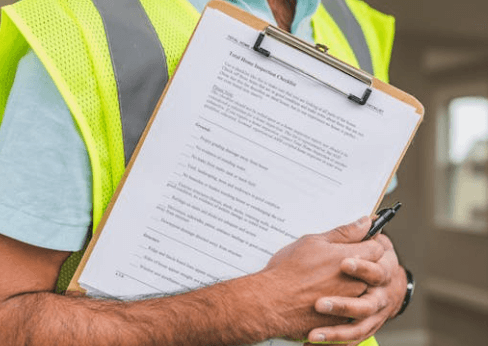In the sunshine state of Florida, the responsibilities of landowners extend far beyond the mere possession of property. Whether you’re a new landholder or have been managing acres for years, understanding the full scope of the responsibilities of landowners is crucial for ensuring both adherence to the law and the welfare of the surrounding environment and community. This blog explores the multifaceted duties of land ownership in Florida, shedding light on the legal obligations, environmental stewardship, and community engagement that define the responsibilities of landowners. Join us as we unpack the essential roles and duties contributing to a harmonious and sustainable relationship between landowners, their environment, and their community.
Steve Daria and Joleigh, seasoned real estate investors in Florida, understand the critical responsibilities of land ownership in the Sunshine State. They consistently highlight the significance of complying with local zoning laws and environmental regulations to promote sustainable development. Furthermore, they are committed to maintaining their properties in top condition, recognizing that this benefits their tenants and contributes to the overall value of their real estate investments.
Acknowledging Property Rights in Florida
In Florida, recognizing property rights encompasses understanding the balance between land use and preserving the rights of neighbors and communities.
Landowners must familiarize themselves with local regulations and zoning laws to ensure their property use does not infringe upon others’ rights.
Understanding Boundaries
Upon owning a piece of Florida, one of the responsibilities of landowners is knowing its exact boundaries. Encroachment onto a neighbor’s land can lead to disputes and legal issues, even if accidental.
Engage a professional surveyor to mark your property’s boundaries properly and avoid misunderstandings.
Navigating Easements and Rights-of-Way
Easements grant nonowners the right to use a piece of their land, often for utility services or passage. Roads, sidewalks, and utility lines are common examples.
Knowing where these exist on your property is crucial to preventing interference and planning for future development or maintenance.

Riparian and Littoral Rights
Riparian rights pertain to water ownership and often include access to navigable waterways. Littoral rights apply to using shorelines rounding large, non-navigable bodies of water.
In Florida, these rights are fundamental given the state’s extensive coastline and many bodies of water, entitling you to expectations and responsibilities regarding usage.
Get Started: Get Your Cash Offer Below…
We are direct land buyers. There are no commissions or fees and no obligation whatsoever. Start below by sharing where your property is and where we can send your offer…
Protecting the Environment and Wildlife
In addition to respecting the rights of neighboring properties, one of the responsibilities of landowners is safeguarding local ecosystems and wildlife habitats.
Understanding Wetlands
Florida’s rich ecosystem harbors numerous wetlands that are both federally and state-protected. Disturbing or altering these areas can result in severe penalties.
Before any land development activities, ensure you have obtained the necessary permits from the relevant regulatory bodies.
Invasive Species and Pest Control
Invasive species are a significant threat to Florida’s native flora and fauna. Landowners must identify and mitigate the impact of invasive species on their property.
This can involve regular inspections and proactive measures to maintain the ecological balance of your land.
Endangered Species Protections
Florida is home to many species designated as threatened or endangered. Recognizing their habitats and implementing protective measures on your land is critical.
Should you encounter protected species, you must report sightings and take steps to avoid disruption.
Property Maintenance and Safety
Proper maintenance and safety measures are the responsibilities of landowners in Florida. They ensure that their property does not pose risks to inhabitants or the surrounding community.
Regular Property Inspections
Thorough, routine inspections of your land can help identify potential hazards such as diseased trees, sinkholes, or dam breaches.
Regular monitoring ensures that you are aware of changes in your property’s condition and can address any issues before they become significant liabilities.

Tree Maintenance and Removal
Tree maintenance is important for your property’s aesthetic appeal and safety. During Florida’s hurricane season, dead or diseased trees can present a significant danger.
It is important to take appropriate action to address these trees and prevent any potential harm. It’s one of the responsibilities of landowners to keep trees on the property in a healthy condition and address any that may pose a danger.
Fencing and Securing Your Property
Fencing is crucial for restricting your property’s boundaries, maintaining privacy, and preventing unwanted entry.
Ensuring your property is appropriately secured can help avoid accidents, trespassing, and unauthorized use, which could lead to legal issues.
Land Use and Development Compliance
In Florida, landowners must comply with local land use and development regulations, ensuring their projects align with community planning and development goals. These rules aim to balance growth with conserving natural resources and community aesthetics.
Zoning and Land Use Regulations
One of the responsibilities of landowners is understanding zoning and land use laws; it’s essential if you plan to develop or change the use of your property. Zoning ordinances can restrict the type of structures you can build, the use of the land, and lot sizes. Following these rules is essential to avoid costly fines and delays in your projects.
Building Permits and Codes
Before any construction or renovation project, you must obtain the requisite building permits from your local government. Building codes ensure that structures are safe, healthy, and energy-efficient.
Compliance guarantees that your property will not be subject to legal consequences and will be an enjoyable and safe space for its occupants.
Impact on Public Services
New developments can strain public services like water, power, and schools. It is one of the responsibilities of landowners to understand the potential impact of your project, whether residential or commercial, and to liaise with local authorities to ensure that the proper services are in place to support your development.
Water Use and Management
In Florida’s unique environmental landscape, one of the responsibilities of landowners is water use and management, ensuring conservation and sustainable practices are a priority.
Responsibility with Well and Septic Systems
Many Florida properties use well and septic systems as their primary means of water and waste management.
Maintaining these systems in good condition is essential to avoid polluting the groundwater and spreading waterborne diseases.
Stormwater and Drainage
Proper stormwater management is critical due to Florida’s frequent and heavy rainfall, resulting in flooding and erosion.
Establishing and maintaining adequate drainage systems on your property protects it from damage and contributes to the community’s flood control efforts.
Water Rights and Sustainability
Sustainability and conservation of water resources are a universal growing concern. As a Floridian landowner, you must be vigilant about water usage and follow relevant state guidelines.
Water conservation measures, like rainwater harvesting and low-impact development practices, can fortify your land and the environment.
Legal Liabilities and Property Insurance
Landowners in Florida are subject to legal liabilities that necessitate understanding state laws and local ordinances relating to property insurance.
Liability for Harm to Others
Should an accident or injury happen on your property, you may be liable for damages, mainly if the incident can be attributed to negligence in maintaining a safe environment.
Regular safety checks and proper insurance coverage can help mitigate these risks.
Homeowner’s Insurance and Additional Policies
Homeowner’s insurance is a standard protection for property owners, covering damages and liability up to a certain limit.
Depending on your specific property and risks, additional insurance, such as flood insurance, windstorm insurance, or liability umbrella policies, may be necessary.
Eminent Domain and Property Seizure
Eminent domain is the government’s right to take private property for public use with compensation.
Understanding this legal provision is essential, especially concerning your area’s development plans and property values.
Staying informed and seeking legal guidance can help protect your property interests.
Community Enhancement and Civic Duty
Landowners in Florida have a vital role in enriching their communities and fulfilling their civic duties by participating in local planning and development initiatives.
This participation contributes to the well-being and growth of their neighborhoods and fosters a sense of unity and collaboration among residents.
Engaging with Community Organizations
Community participation and engagement are vital to land ownership in Florida. Joining or supporting local conservation and development groups can help maintain and enhance your property’s value and quality of life.
Property and Aesthetic Enhancement
Maintaining your property’s visual appeal by planting native trees and shrubs or undertaking beautification projects can have a positive impact on the community. It can also serve as a source of pride and increase its value.
Responsiveness to Community Concerns
Considering community concerns about your property demonstrates good citizenship. Addressing noise, lighting, or other issues can help foster positive rapport with your neighbors and local authorities.
Conclusion
Owning land in Florida is an investment in its rich natural heritage and vibrant communities. With this privilege, however, comes a set of multifaceted responsibilities. From understanding property rights to environmental stewardship and stringent legal compliance to communal engagement, the role of a landowner is imbued with opportunity and obligation.
By arming yourself with knowledge, engaging in proactive stewardship, and maintaining a conscious presence in the web of civic and environmental responsibilities, your tenure as a Florida landowner can be enriching, not just for yourself but for the land and lives that your ownership touches. Take these guidelines to heart and pave the way for responsible and rewarding land ownership in the beautiful and bounteous state of Florida.
**NOTICE: Please note that the content presented in this post is intended solely for informational and educational purposes. It should not be construed as legal or financial advice or relied upon as a replacement for consultation with a qualified attorney or CPA. For specific guidance on legal or financial matters, readers are encouraged to seek professional assistance from an attorney, CPA, or other appropriate professional regarding the subject matter.
